| Columns Retired Columns & Blogs |
One of the best ever and much needed direction during the pandemic.

J.S. Bach: Trios
Chris Thile, mandolin, guitar; Yo-Yo Ma, cello; Edgar Meyer, double bass.
Nonesuch 558933 (2 LPs; CD; 24/96 AIFF files available from HDTracks and Presto Music; 24/48k MQA-encoded FLAC file available as a Tidal stream that unfolds to 24/96k). 2017. Ruth E. DeSarno, exec. prod.; Steven Epstein, prod.; Richard King, eng.
With the exception of the Brandenburg Concertos, which were written with specific solo instruments in mind, the instrumental music of Johann Sebastian Bach seems to exist on a separate plane from the actual scoring. From William Malloch's arrangements for string orchestra of the Art of Fuguing on Sheffield Lab, which was originally composed for an unspecified keyboard instrument, to the extraordinary vocal stylings on the first Swingle Singers album, the voices and unoriginal instruments shine the light on the music's meaning from different directions. This album of transcriptions played by three string-instrument virtuosi illustrates that point. Even pieces that I thought I never needed to hear again, like the hymn Wachet auf, from the cantata of the same name, had me mesmerized by the beauty of the music making. My favorite track was originally an organ chorale, Erbarm dich mein, o Herr Gotte (Have mercy on me, Lord my God), where pizzicato double bass and gently strummed block guitar chords accompany the melody played in what sounds like harmonics on the cello. I auditioned the album as both 24/96 files and as an MQA-encoded 24/48 stream. The sound quality, captured in James Taylor's home studio (see the discussion in Ken Micallef's interview with Taylor here), is not quite at the level of the musicianship, being slightly on the dry side. But no matter: Bach: Trios has been in heavy rotation since Jason Victor Serinus recommended it to me.
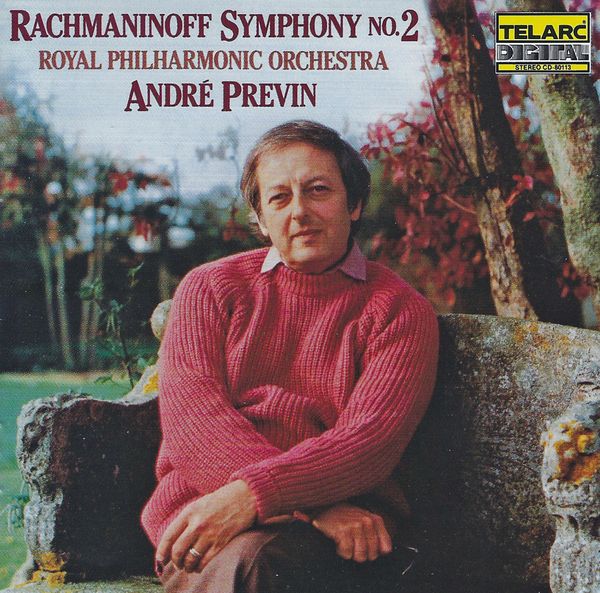
Rachmaninoff: Symphony No.2 in E Minor
André Previn, Royal Philharmonic Orchestra
Telarc 80113 (CD). 1985. Robert Woods, exec. prod.; James Mallinson, prod.; Jack Renner, eng.; Tony Faulkner, assist. eng.
The opposite to Bach's cerebral scoring is the orchestral music of Sergei Rachmaninoff, typified by my second choice for this issue's R2D4: Rachmaninoff's Symphony No.2 in E Minor, where the emotional impact of the endless stream of glorious melodies is amplified by this master orchestrator's choices of instruments to play those tunes. The album was recorded by Telarc's cofounder, the late Jack Renner, who captured the sound of the orchestra in North London's Walthamstow Assembly Hall with three spaced omnidirectional microphones. The result is a gloriously rich presentation with a wide dynamic range and a soundstage well-defined in both width and depth, but without the solo instruments sounding too big, which can often be the case with orchestral recordings.

U2: War
Island Records 90067-1 (LP). 1983. Steve Lillywhite, prod.; Paul Thomas, eng.
I remember proudly telling my older brother, home from college, about my newest musical discovery: U2. "I'm sure they'll be the next Beatles," he replied dismissively.
Well, U2 has now lasted much longer than the Beatles and sold almost as many records. I feel vindicated.
Later U2 records were more accomplished musically and technically, but for raw passion—equal emphasis on those two words—none has matched the one that produced "Sunday Bloody Sunday," "New Year's Day," and "Two Hearts Beat as One."
War is the album that finally dethroned Michael Jackson's Thriller from the top of the charts. War is a much more serious affair, focused on the tangible consequences of, well, war.
War reflected what Bono perceived to be the spirit of the times: "War seemed to be the motif for 1982," Bono told NME in an interview. And yet in some ways, the album is based in romance. "New Year's Day" grew out of a love song Bono wrote for his wife. "Sunday Bloody Sunday" arose from a riff guitarist the Edge wrote after an argument with his girlfriend, when he was "feeling depressed" and "channeled [his] fear and frustration and self-loathing into a piece of music." This is a very good post-punk band exploding into something bigger. A touchstone for rock music.
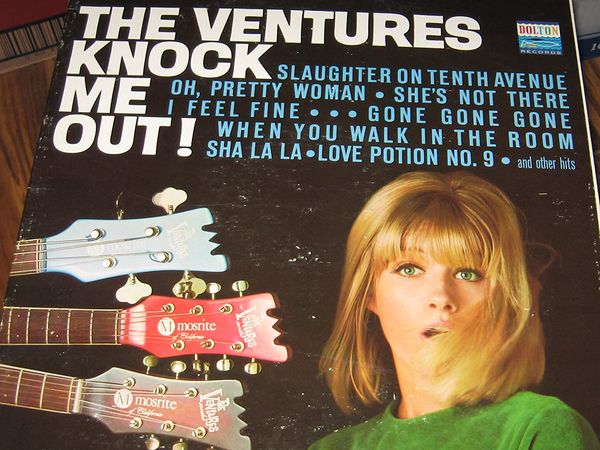
The Ventures: Knock Me Out!
Dolton Records BST-8033 (LP). 1964. Dick Glasser, prod.; Eddie Brackett, eng.
I haven't been back to the place where I grew up in 30 years, but I do remember well the small record-storage space inside the big old Magnavox stereo console in our living room. It held an odd assortment of LPs: Bobbie Gentry, Mantovani, Glen Campbell, Lynn Anderson, the Troy State University Marching Band, and this. Knock Me Out! is a typical Ventures album: songs from the Beatles ("I Feel Fine"), the Zombies ("She's Not There"), Roy Orbison ("Oh! Pretty Woman"), the Everly Brothers ("Gone, Gone, Gone"), and others given the usual Ventures guitar treatment, with a few original compositions. There are even vocals on the final track.
I say I'm disconnected; maybe that's why I do so love a good '60s vibe. You can find it here.
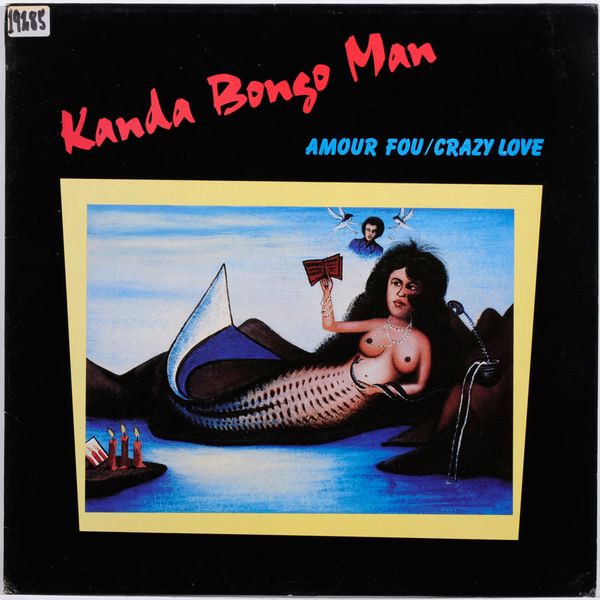
Kanda Bongo Man: Amour Fou
Kanda Bongo Man, vocals; Diblo Dibala, Rigo Star, guitars; Miguel Yamba, bass; Domingo Salsero, drums; Philippe Guez, keyboards.
Hannibal HNCD 1337 (CD). 1988. Kanda Bongo Man, prod., eng.
This Paris-based singer transformed Congolese soukous by speeding it up, adding Caribbean spice, and extending his bandmates' guitar parts. Here, his sugary high tenor is backed by a crack rhythm section with guitar stars Diblo Dibala and Rigo Star interlacing filigreed vamps. Building in intensity from first track to last, the session hits a high point on the buoyantly propulsive, candy-sweet "Amour Fou" ("Crazy Love"). Dibala and Star entwine gripping solos on "E'mame," but the session doesn't climax until the final "Bayembi," where the two guitarists vamp irresistibly in tandem.
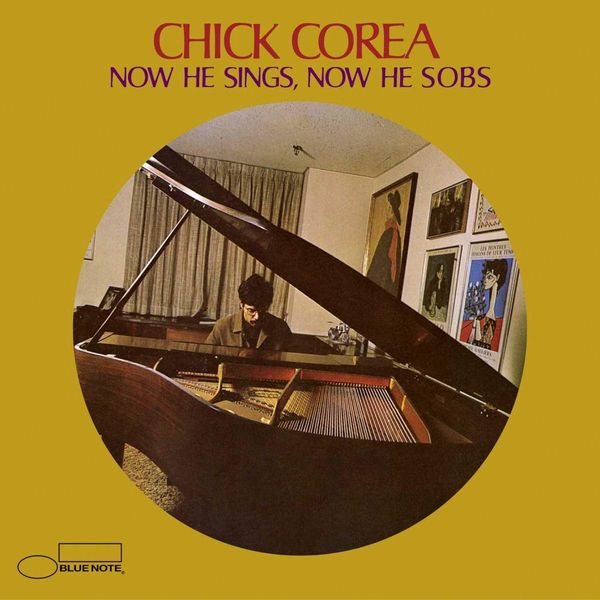
Chick Corea: Now He Sings, Now He Sobs
Chick Corea, piano; Miroslav Vitous, bass; Roy Haynes, drums.
Blue Note B0029363-01 (LP). 1968/2019. Sonny Lester, Joe Harley, prods.; Doug Hahn, eng.; Kevin Gray, remastering.
Corea's second album is arguably his finest, a piano trio classic where the three players interact brilliantly. Corea is in superb form, blending bebop and free jazz in his own engaging style on a radiant set of distinctive original compositions. The energy and creativity never flag, from the opening "Steps–What Was," which segues from a driving, off-kilter blues into a Spanish-flavored romp, to the closing "The Law of Falling and Catching Up," a foray into total abstraction.
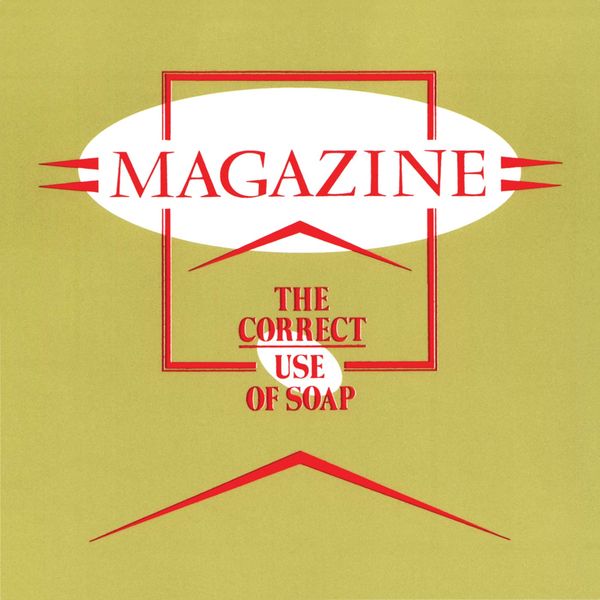
Magazine: The Correct Use Of Soap
Virgin 5782370B (LP). 1980/2018. Martin Hannett, prod.; George Piros, eng.
Following their second album's worrying closeness to prog rock, Howard Devoto steered Magazine toward this jerky, edgy, but highly accessible post-punk masterpiece. Catchy but slightly unnerving, lyrically nodding toward Kafka and Orwell, every song is a sublime cameo of paranoia. Barry Adamson's funky bass, John McGeoch's screechy guitar, and Dave Formula's synths bounce off Devoto's distinctive, deadpan singing across 11 songs. The result is like claustrophobia's greatest hits. Add some neurosis and the very apt album title, and this defines me in these pandemic times.
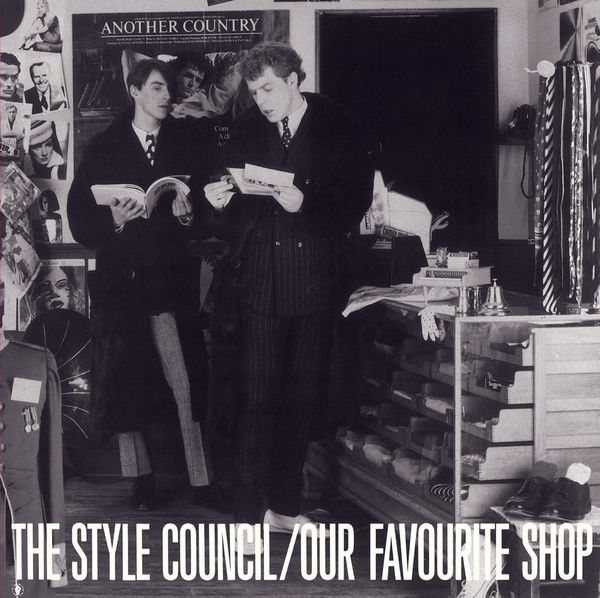
The Style Council: Our Favourite Shop
Polydor 825 700-1 (LP). 1985. Paul Weller, Peter Wilson, prods.; Roger Wake, eng.
There are albums that grow on you slowly, and there are those that grab you right from the start. This gem hit my turntable in 1985, and to my then-housemate's considerable irritation, it didn't leave it for weeks. Literally. After the Jam, Paul Weller had formed The Style Council, combining soul, jazz, and politics in a loose ensemble. Those who like their music politics-free or their protest singers to be unshaven folkies sneered at The Style Council. Both missed a treat, because this is perfect protest pop. I still love it. I changed my housemates, though.
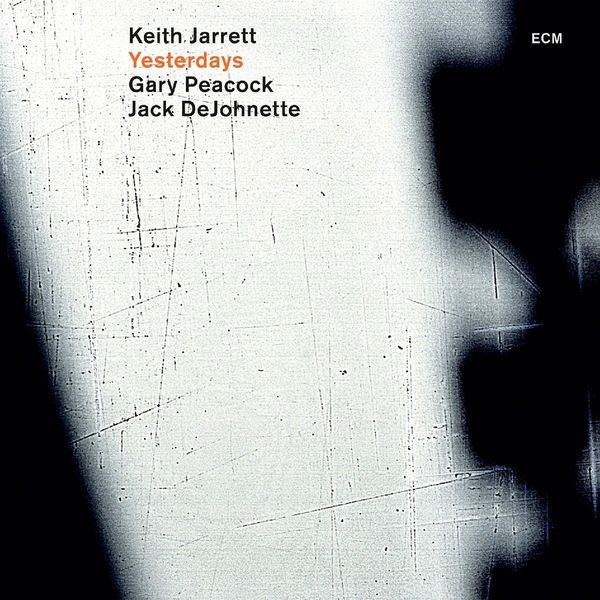
Keith Jarrett/Gary Peacock/Jack Dejohnette: Yesterdays
Keith Jarrett, piano; Gary Peacock, bass; Jack DeJohnette, drums
ECM 2060 (CD). 2001/2009. Manfred Eicher, Keith Jarrett, prods.; Yoshihiro Suzuki, eng.
As I write this, the sad news of Gary Peacock's death and Keith Jarrett's crippling strokes is still fresh. It feels like a good year to choose a Jarrett "Standards Trio" album as an R2D4. This ensemble's body of work is so enormous and so consistently strong that you could throw a dart and hit an R2D4. Yesterdays was beautifully recorded live in Metropolitan Festival Hall in Tokyo in 2001. Jarrett is in the zone. "Shaw 'Nuff" is insanely fast affirmational bebop. "Stella by Starlight" is an extravagant double-time revelation. How good was Jarrett? "Stella by Starlight" was captured during the soundcheck.
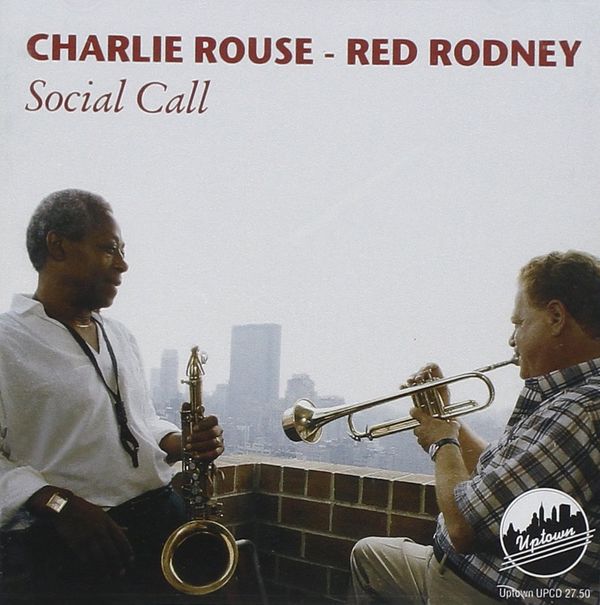
Charlie Rouse/Red Rodney: Social Call
Don Sickler, arr.; Charlie Rouse, tenor saxophone; Red Rodney, trumpet, flugelhorn; Albert Dailey, piano; Cecil McBee, bass; Kenny Washington, drums
Uptown UPCD 27.50 (CD). 1984/2003. Robert E. Sunenblick, MD, prod.; Rudy Van Gelder, eng.
What are R2D4s for if not foisting off on an unsuspecting public obscure artifacts even the nerds have forgotten? It's stunning to be reminded of how good the second-line players who came out of bebop were. Rouse and Rodney made Social Call in 1984, when they were 59 and 56 respectively, two alpha males still breathing fire. They manhandle with finesse great tunes from back in their day like Miles's "Half Nelson" and Dameron's "Casbah." Rouse's gritty, warm tenor saxophone tone is a wonder to hear again. And Rudy Van Gelder's fine recording will scorch the cilia in your ears.
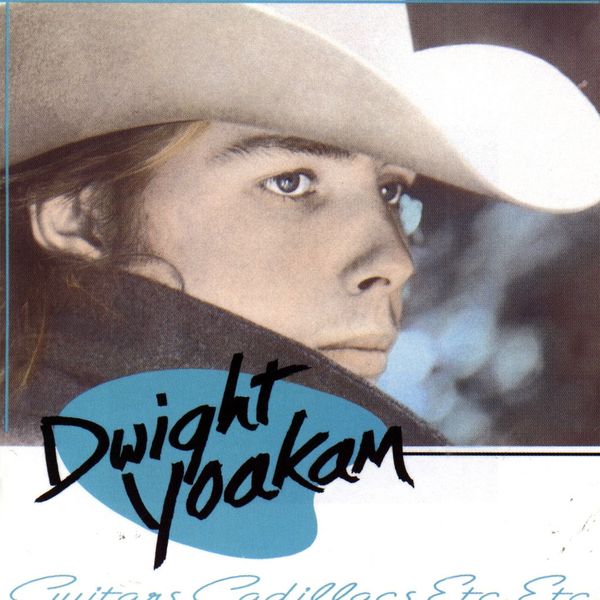
Dwight Yoakam: Guitars, Cadillacs, Etc., Etc.
Reprise 9 25372-1 (LP). 1986. Pete Anderson, prod.; Brian Levi, Dusty Wakeman, engs.
I was floored when I first heard the song "Guitars, Cadillacs" on one of the FM stations in Boulder, Colorado. It was cool—really, really cool, kind of like the Blasters' "Marie, Marie," but with stunning, impossibly twangy vocals unlike anything I'd ever heard. A few songs later, the DJ went through his playlist, I went through a process of elimination, and voila, I'd just heard the title cut from Guitars, Cadillacs, Etc., Etc., the debut album from someone named Dwight Yoakam.
I'd soon learn that the album was dynamite, stem to stern. Yoakam's work has since devolved into some sort of unfortunate honky-tonk morass, but Guitars, Cadillacs, Etc., Etc. remains a really cool exemplar of foot-tapping, boogie-in-your-seat rockabilly music.
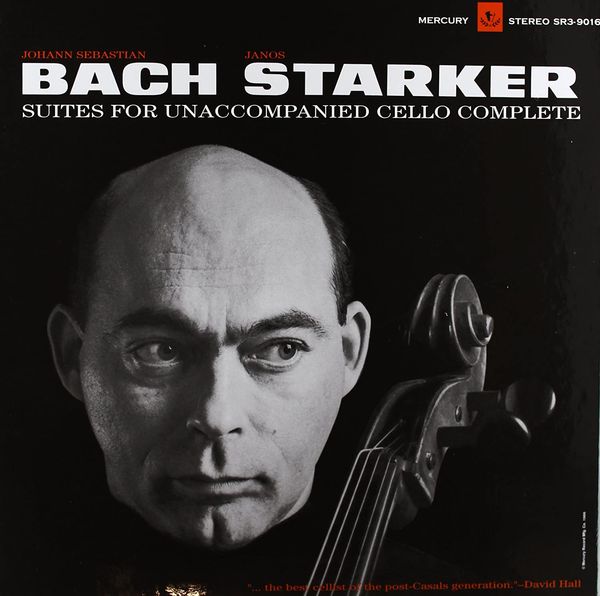
J.S. Bach: Suites For Solo Cello: No.2 in D Minor, No.5 in C Minor
János Starker, cello
Mercury Living Presence SR90370 (LP). 1963. Harold Lawrence, prod.; Robert Eberenz, eng.; George Piros, tape-to-disc transfer.
This is a wonderful album, to my ears as near perfection as one can come. The music is gorgeous, but that's only part of it. There are numerous lovely interpretations of these works, but when I listen to Starker's performance, I know deep inside that he's found the musical truth. It quickly becomes impossible to imagine another perspective. The recording process also feels inherently right. It almost vanishes completely as it seems to bend time and space to crank the calendar back to 1963 and place me in Studio A at the Fine Recording Company. I'll say it again: This is a wonderful, nearly perfect album, one that I don't want to be without.

One of the best ever and much needed direction during the pandemic.

...when I dropped by my local brick-and-mortar stereo shop not long ago and my wife expressed some "concern" at my music buying this past year!

Two things that have kept me going all these months:
The constant stream of vinyl mailers that bring new music to my door, and fantasies of the moment I'll walk into a club again and hear it played live.
Looking forward to perusing the list.

Records ARE to live for. Music is ALIVE. We think it, we breathe it, even taste it. Let's call it for what it is.

Verdi in one of his best Aida
Why not highlight that this record is analog and is available in an analog edition (uncompressed)

This isn't my choice (although I love the recording), and I don't pretend to speak for Tom. But as far as I can tell, the CD/Blu-ray package is readily available, as is a 24/96 download at HDTracks and other sites, while the vinyl seems only available used.
There's also a potential fallacy in your statement. Do you know for certain that no compression was used by the recording engineers? I don't know, but I do know that many analog recordings were subject to compression.

I agree, but with patience you can find a good copy near mint, and maybe with more luck NEW.
Analog is less compressed than digital. On vinyl this is the closest thing to the original master tape.
On my analog system that recording, Aida-Verdi-Solti-Price, sounds better.
Good hunting and happy listening. Thank you.

I know my hearing is going, but I bought a CD of an artist I love and have many recordings. I was having a hard time understanding all the lyrics that was being sung. I thought, am I losing it and my hearing getting worse?
I dragged a file into Sony Sound Forge 14 and there is was: compressed and then the flat top wave form .1db under 0...full scale. Well, that engineer didn't want any "Overs". lol
There were points in each song where the music was above the vocalist. I always viewed the vocalist as a boat on water; big dynamic range might look like giant ocean waves in my editor which is fine if they are below 0 db. If the music is more gentle like a ripple in a lake the vocalist could be in a row boat or a nice wood bodies inboard boat, but always above the waves.
This seemed to be followed more by vocalist and engineers in the 40's, 50"s, and 60's like Sinatra, Bennett, et.al; and now Krall, Buble' and many others. Sad, but true.
It seems that with all the options in DAWs these days that recordings can be made worse by doing more engineering. It needs to be dialed back.
JA1's recordings are always a benchmark for me. His choral work is the best as are recordings by Eric Whitacre. When you can understand what the entire choir is singing you know the engineering is top notch.

Great List- Guys!
good to see a few 2020 titles make the grade.

Seems like a comedic cliche,
Are we intending to make it into an Institution here ?
It's bad taste that isn't funny.
We should take a leadership stance and describe these Albums as Hall of Fame Albums with each getting its own individual Number and date of enshrinement. ( Of course, if these Albums are actually deserving , which I think they are )
Stereophile needs to hold the Higher Ground in matters like this.
Tony in Venice Florida

Dear Tony,
You frequently amaze me. Stereophile's Records-To-Die-For already is an institution; it has appeared every year for a very long time. Are you suggesting that Jim Austin consider renaming the feature "Records to Live For?"
As for needing to take a leadership stance, I think that this long-standing feature and the magazine as a whole already do. Do you disagree?
Your "shoulds" suggest that you're ready to apply as our new editor. An interesting prospect, to be sure. Perhaps first, since you live on the FL coast and the consequences of global warming are being felt everywhere, you might consider moving to Higher Ground.
Be well. Without your thoughts, the comments section would never be the same. I hope as many people look forward to my contributions as they look forward to yours.
jason

Tony's lost a step.
He forgot to whine about the word "records" while mewling about "to die for."
But, he skipped his usual retelling of how he owned a Hi Fi business, so that's a step forward.

I'd need a good original instrument recording before I'd expect that.
HIP is high fidelity.
With JSB's music for harpsichord on a Grand Piano you can't DO it, as you have to leave notes out.
:-)

"to die for" is a 20th Century expression, born from a Comedic Movie. It is a tired expression about selfish greed for a Prada Purse. It's Cultural to a life of privilege and a disrespectful reference to a shallow pursuit to competitive acquisitions. It's a Bubble-Gum expression.
Our best recordings and the talent creating them "should" find a place of Distinction, documented for all time with Stereophile and Staff being the Curators. ( who is better equipped ? )
Great and Outstanding Recordings are the Bedrock Foundation of our wonderful hobby/avocation. We have a duty to Honour them with something they earned and achieved : Placement in Stereophile Staff's Hall of Greatness !
Stereophile could & should/could become Stereophile News & Record Review.
Higher Ground : I live 16 feet above Sea Level, am fully insured for Water, Storm Surges, Hurricanes and high winds. My residence is built to withstand 132mph flying bits. It's a Tropical Paradise. I can no longer tolerate returning to the frozen North, for any reason including participating in another Progressive Political Movement. Temperatures can drop to 50F and increase to 90F, our Pool floats at 88F, swimming is a weightless nirvana.
Thank you for writing, corresponding with you has always been a rewarding experience.
Tony in Venice Florida

With all due respect to Mr. Austin, his "vindication" of U2 seems to be a bit perplexing, based on the claims he makes in his review of their album War. While U2 has indeed carried on as a functioning band for longer than the Beatles did, they have not lasted "much longer" nor have they "sold almost as many records." Based on the numbers I have seen the Beatles total claimed sales figures are listed as anywhere between 500 million to 1 Billion units sold, with "Certified" sales of 282.3 Million. U2 on the other hand has total claimed sales of 150 Million and "Certified" sales of 111 Million. Perhaps Mr. Austin's idea of "nearly" and mine are different, because, in my opinion those respective numbers for each artist aren't even remotely near each other. And I like U2. Nothing against them.

I have the MFSL cd, The Tubes, in my collection. It is very good and played often. Would like to have seen something from the Van Halen catalogue make the list. I was waiting for a flight home in McCarran when the news arrived that Eddie Van Halen died. Once home, I went on a binge of Van Halen records for the next several days.
As for live music, we spent the Christmas week at Lauderdale By The Sea and the restaurants and bars by the beach were busy and featured many local two and three piece musical acts playing a great selection of music. We enjoyed it immensely!

I'm happy to see Starker's Mercury recording of the Bach cello suites here. I haven't heard it on vinyl, but the 3-channel tracks on the SACD are incredibly lifelike.

It is nice to see Previn's Rachmaninoff Second Symphony on this list. I love the recording, and his previous recording with EMI was also outstanding. Previn remains an underappreciated conductor, in my opinion. He was an intelligent and insightful musician, especially in his EMI recordings from the 60s and 70s. His Midsummer Night's Dream recording with EMI is one of my desert island recordings, and I think one of the top classical recordings of all time.
A special shout out to Ken Micallef for the Sonny Rollins - Rollins in Holland introduction, I never knew it existed, done, ordered. Thanks, Ken.

It is nice to see Previn's Rachmaninoff Second Symphony on this list.
Yes and his recording of Rachmaninoff's First Symphony is, imho, even better although the 1st, itself, is not.

It is good, but not as memorable to me because the second is lyrically superior.
Forgot to mention the Aida/Solti recording as well. Anything with Price and Vickers is bound to be a winner. Meeting Vickers many years ago in Montreal and spending quite a bit of time with him chatting about his career and the conductors he worked with was unforgettable. He wanted to continue chatting but I had to call it a night - a decision I immediately regretted.

Well, I did admit that the 2nd is a superior work but, otoh, I am bored by it and I still can get a kick from the 1st. Another Previn winner is his Shostakovich 8 with the LSO.
As for that Aida, yes, too, although I am much more of a Vickers fan than a Price fan.

You mean his Deutsche Gramophone 8th? that he did a few years ago? I find his later Shostakovich sometimes doesn't have that frenetic pace or edginess that Shostakovich requires. His earlier Shostakovich recordings better exemplified that although will admit I don't think I have his 8th on EMI, will have to check.
I was actually listening to Karajan's recording of Shostakovich's 10th the other night, the one he did in the 60s, and find he nails it, gets the tension and pace just right. I also compared that recording to a live recording of him and his orchestra live in Moscow and it is virtually indistinguishable from the recording, amazing how well he had them playing. He actually did very well with the digital recording from the 80s, but the sound is quite flat. It's a pity he never recorded more of Shostakovich's works.
But I digress, will have to seek Previn's earlier EMI of the 8th on vinyl.

Julie Mullins that R2D4 is meant to bring to readers' attention long forgotten or overlooked gems. What is she going to bring to our attention next year, Holst's tP's or DSotM?

Most of this music is not relatable for me and being relatable is the exact point of music. I really liked the music suggestions on Inner Fidelity.